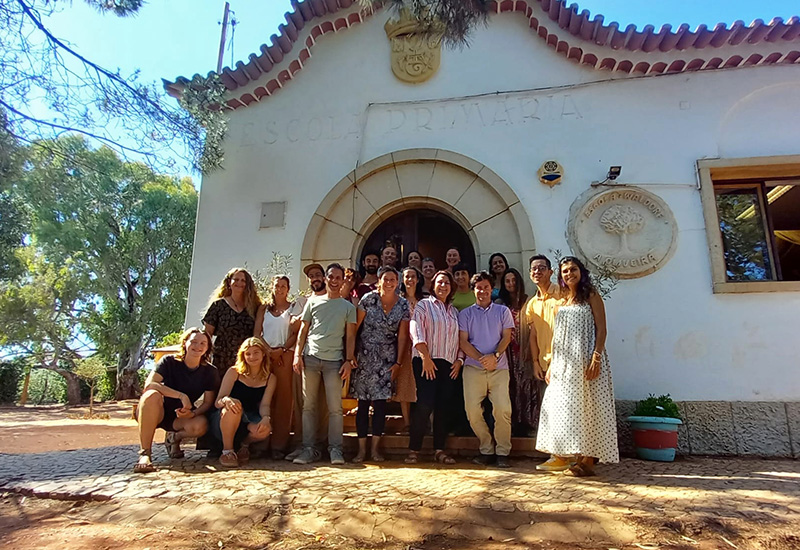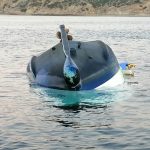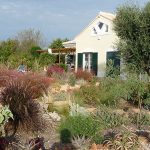Can you imagine a school with no student textbooks, no exams until the 6th grade, and with limited modern technology in this day and age?
Welcome to Escola Waldorf a Oliveira with its two branches, one in Figueira and another in Vila do Bispo. Children from first to eighth grade enjoy a pedagogical approach that awakens their spontaneous desire to learn by engaging head, heart and hands.
I went to visit the school to see Waldorf education in action and find out how we, as a community, can aid their expansion project. I was greeted by Lisa Marie Owsianiak, project manager for the expansion project at Monte Judeu. After preliminary introductions, I was invited to join a fifth-grade classroom with teacher Sérgio Martins. The students were standing up in a semicircle, with no desks visible. Sérgio picked up his guitar and the voices of boys and girls filled the humble classroom. The students were very excited at my presence and their shared wish for the school was to move to better accommodation.
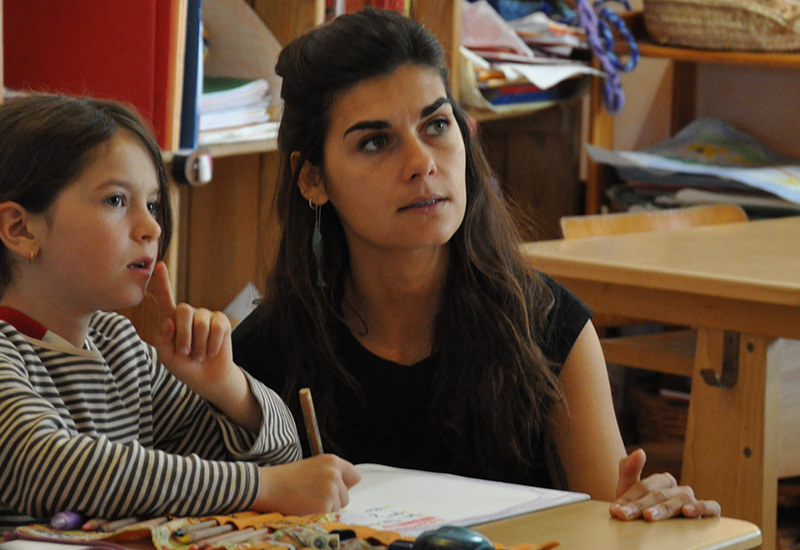
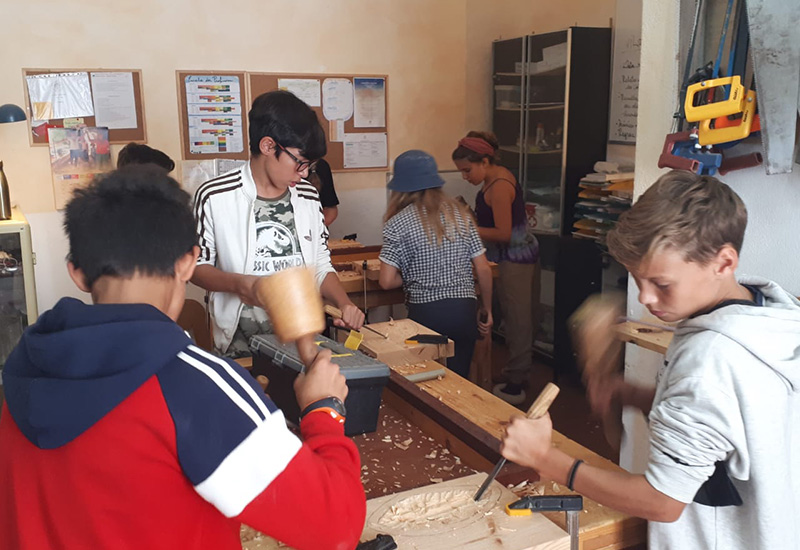
I accompanied teacher Salome into a third-grade classroom where each child was displaying to the school their final homework assignment of the year, i.e. model houses made of clay and other materials. I was informed that their parents had contributed to this project and that an outdoor building would be constructed on the school’s grounds so the children could apply their skills in real life.
Children and teachers appeared to have such a symbiotic relationship – the atmosphere was relaxed, playful and respectful. A few children told me that at the end of the day, they don’t want to go home and when they are ill, they miss school. One child approached me with a big smile and said joyfully: “I can now crochet!”
I spoke with her mother and asked her why she had chosen this school. “It’s very simple,” she replied. “She learns morals and freedom through playing and having fun. In this school, there are many children who speak different languages and the teachers help each child reach their potential.”
After visiting the Figueira branch, which educates children up to fifth grade, Lisa took me to Vila do Bispo, where the school is in a rundown building that used to be a hospital, then housed the GNR (Guarda Nacional Republicana). It now educates children from sixth to eighth grade. The building is very restrictive, with no outdoor space. The sound echoed through the corridors, the kitchen is old, and the carpentry room is very small. Despite these downfalls, I found a group of students and teachers so resilient and dedicated to making this project long-lasting. One student told me that they don’t have textbooks, and the teacher Marisa proceeded to inform me that topics like history, geography, science, mathematics and others are taught in blocks of four weeks, and the children are given the freedom to create curriculum-rich manuals with their own handwriting and illustrations.
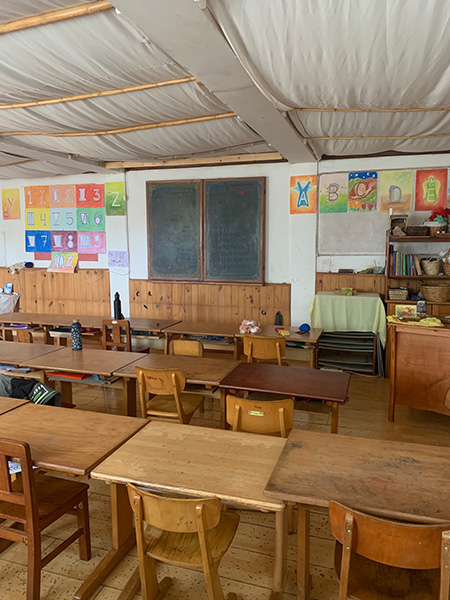
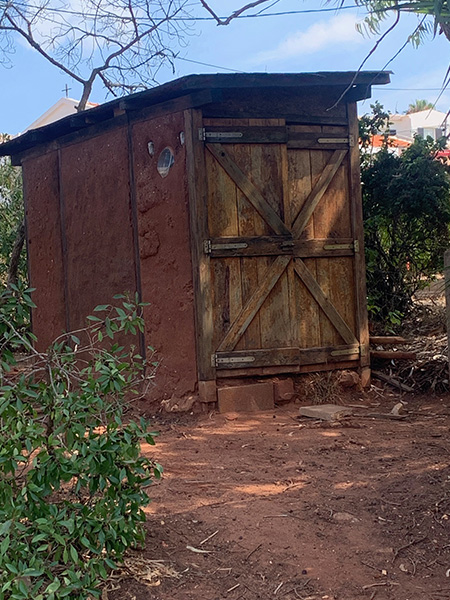
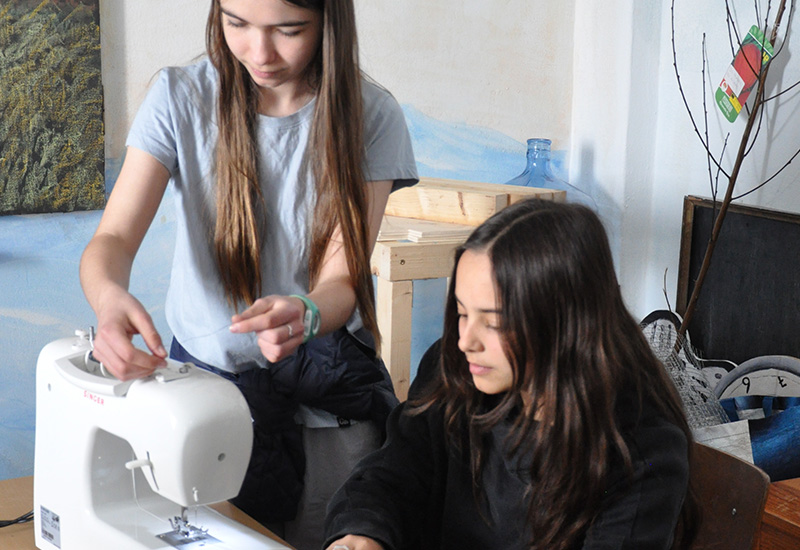
Waldorf teachers work to nurture and engage each child through a collaborative and dynamic curriculum that integrates mathematics, geography, history, natural sciences, arts and crafts, languages, eurythmy, music and singing, with social and life skills taught beyond the classroom setting.
The project coordinator and teacher at Escola Waldorf a Oliveira, Pedro Miguel, explained how the school started in 2008 as a result of parents wanting to extend their children’s education beyond kindergarten within this pedagogical vision. Initially, there were only nine students and their parents paid to renovate an abandoned building. Now the school educates 124 children.
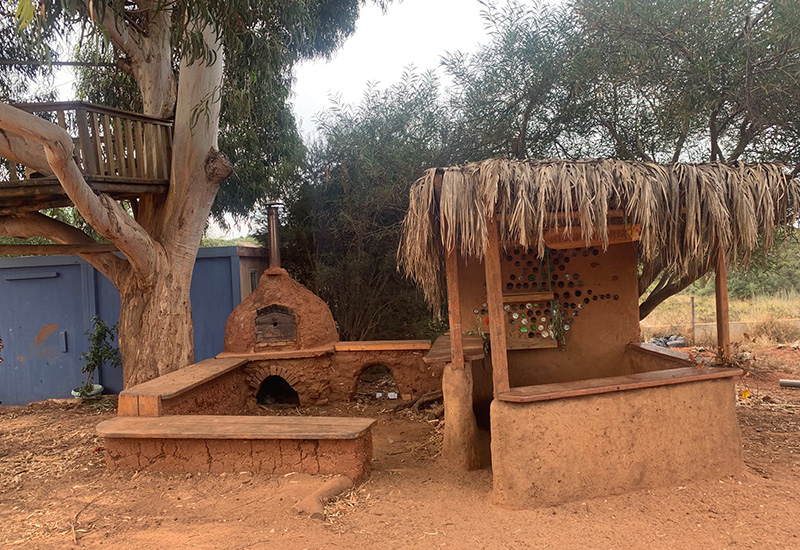
As the school’s success grew, this building became too dilapidated, so the non-profit association used its own funds to procure metal containers and turn them into vibrant teaching rooms that feel more like a home setting than conventional classrooms. However, these metal containers are no longer fit for purpose and, in 2017, the Camâra Municipal de Lagos gave permission for an old ice cream factory located in Monte Judeu to be converted into a school. Lisa explained that the conceptual design of the future site of Escola Waldorf a Oliveira involves architectural changes that will take place in three phases. Phase one begins in September 2023, and phases two and three will happen later as funds allow.
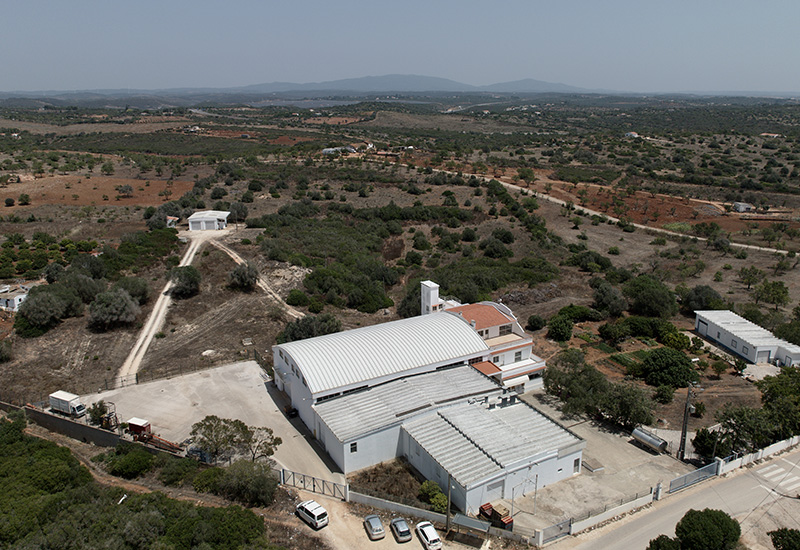
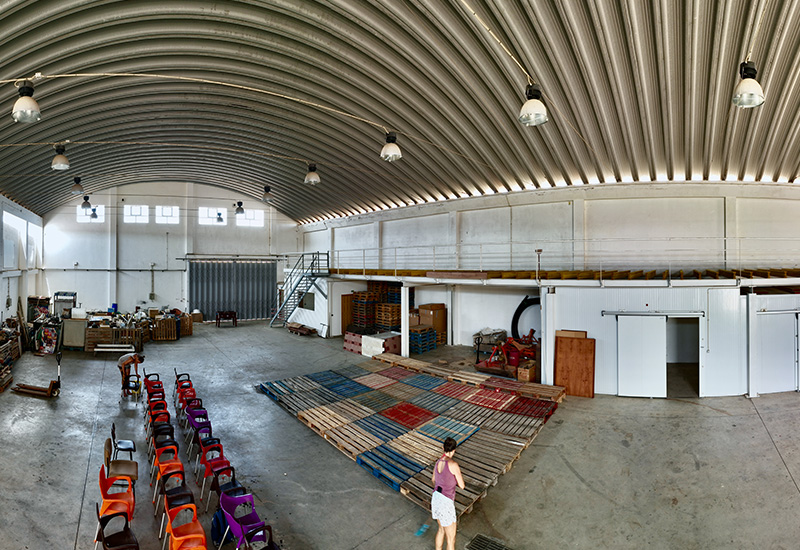
The new school will provide children with adequate workshops, large classrooms and vast outdoor grounds, which will unite both school branches and take them to twelfth grade in the near future.
There are currently over 1,200 independent Waldorf schools around the world, and there are seven Waldorf schools and kindergartens recognised by the Ministry of Education in Portugal. Lisa explained that donors, parents and teachers have supported the expansion project but that they are also seeking funding from crowdfunding and private donors to be able to continue. For several years their budget has been balanced by the non-profit association as they receive no funding from the Portuguese Government.
The future Escola Waldorf a Oliveira will be next to its international kindergarten counterparts and, with the help of the community, the Waldorf curriculum will continue to develop and preserve its core values.
If you would like to contribute to this dream and support the Steiner movement in Portugal, particularly in the Algarve, please visit: https://fnd.us/escolawaldorfaoliveira. For more information on Escola Waldorf a Oliveira visit the link below.
www.escolawaldorfaoliveira.org
What are Waldorf Schools?
The first Waldorf school was founded in Germany in 1919 by Rudolf Steiner, who proposed that children should be given individualised attention in order to develop their creativity and personal interests. Two key concepts of the Waldorf curriculum include observing children in stages of seven-year increments, which Rudolf Steiner believed were: 1) spiritual cycles and 2) themes where teachers create a curriculum to fit each child.
Did you Know?
Waldorf schools do not require students to be “reading” until the end of grade 3. This may seem shockingly late for many of us who are conditioned to push children to become literate at an early age, but research indicates that children exposed to this model of education, perform well academically and are well-rounded individuals.
